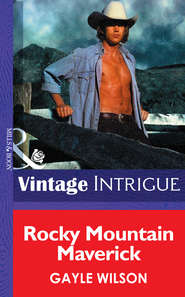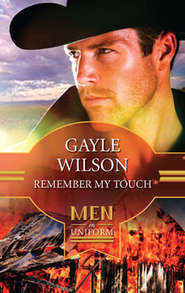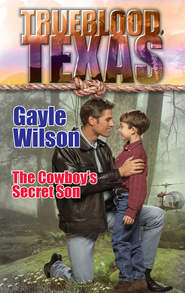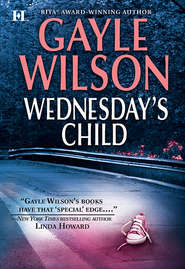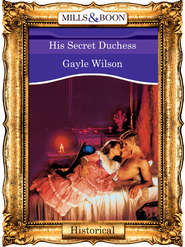По всем вопросам обращайтесь на: info@litportal.ru
(©) 2003-2024.
✖
Raven's Vow
Настройки чтения
Размер шрифта
Высота строк
Поля
Unconsciously she flexed the bruised fingers the viscount had gripped so painfully earlier tonight. “But he promised,” she whispered, fighting the urge to give in to the tears that she so seldom shed. Her own father had forsaken her.
“I’m sorry. I believe my proposal probably played a part in his decision, at least in the timing. Youdid try to warn me.”
She looked up at the unexpected confession, surprised to find what appeared to be a look of concern on his face. It was almost immediately replaced by the controlled expression John Raven’s features always bore. So quickly did the change occur that she was forced to doubt her identification of the emotion she had seen. How could he possibly know what she was feeling—this sense of betrayal and despair over the fate her father had arranged?
“It’s not your fault,” she admitted, because in all fairness it wasn’t. “I suppose I’ve always known this was inevitable. And Gerald…” she began, again remembering his actions tonight. She had held to the illusion that if she were forced to choose from the men she knew, Gerald at least offered some possibility of rapport. Until tonight. Tonight he had seemed almost a stranger, determined to force her to his will.
“There is another option,” Raven said, interrupting her despondency.
She glanced up from the announcement her father had had composed. An option. Freedom and wealth.Rich as Croesus. At least she would never have to wonder if John Raven had wanted her for her father’s money. No, she remembered suddenly, he wanted her for a far different reason. His promise of noninterference in her life was to be in exchange for her becoming his hostess, for arranging his entry into the ton. A business arrangement. If only he had offered…
She banished that ridiculous thought, trying to decide if accepting Raven’s proposal could possibly provide a way out of the trap Amberton and her father had so blithely created. A marriage trap—weighed against the promise of freedom.
“Freedom?” she questioned aloud. And as if he had been following the convoluted path of her reasoning, he nodded.
“You have my word. Within the constraints of our contract. You invite to this house those men who would certainly not come otherwise, entertain them so well that the invitations to dine here become the most fashionable in London, and you refrain from taking lovers. Other than those responsibilities, you may do entirely as you wish. I promise that I will never censure you,” he vowed, and again she found herself believing him.
“You must know my father will disinherit me,” she warned.
“The fewer ties you have with your father, the better pleased I shall be,” Raven admitted. His gut twisted at the remembrance of what the old man had said. That insult had cut far more deeply than the gash across his face.
Catherine hoped that, like her father’s coachman, she was a good judge of character. “All right,” she agreed softly.
Raven said nothing, relief and exultation blocking his throat, a reaction as automatic and uncontrollable as that which tightened his stomach muscles and stirred painfully in his groin. She had just agreed to become his wife. Against everyone’s assurance that she never would.
Because he didn’t respond, Catherine was unsure that he had heard her whisper. She looked up and said it again. “All right, Mr. Raven. I accept. And now, how do you intend to bring this off, in light of the announcement tomorrow of my betrothal to Lord Amberton?” Somehow she had no doubt he had already devised a plan to handle the practical aspects of their wedding.
“I had thought…” Raven paused, trying to gauge her mood. There had been too much pain in those beautiful eyes. Pain quickly hidden beneath her pride.
She met his searching gaze with her face deliberately cleared of emotion and her chin unconsciously raised. Once committed, she was prepared to burn her bridges spectacularly.
“You intend to let my father find us together?” she guessed, realizing that he certainly didn’t know the duke as well as she. “Hoping that he’ll then consent to our marriage?”
“Would that work?” Raven asked, amused at the scenario she’d suggested. Far more melodramatic than what he’d planned, but when he considered the possibilities it offered…
“I’m afraid not. He’d shoot you, or hire someone to do it, and then cover it up. He also has a great deal of money.”
His lips moved slightly, and she knew she’d amused him.
“Then do you suggest I tell him that you’ve agreed to become my wife?”
“He’ll shoot you, or hire someone to do it, and then—”
“I see.” He interrupted her repetition of the outcome. And he was still amused. “Then perhaps you have a suggestion.”
“Gretna Green,” she said decisively, fighting memories of another run for the Border. Another man, very different from this. “Shocking, I know,” she forced herself to continue, “but it’s really the only way.”
“And your reputation?” Raven could imagine how their elopement would be viewed by the ton. He hadn’t intended to ruin her life, to cut her off from everyone she’d ever known.
“Oh, dear Lord,” she said, chiding his ignorance. “A scandal of the proportionthis one is going to be? The love story they’ll imagine is at the root ofthis runaway marriage? Your wealth? And your appearance?” she added unthinkingly, and saw again the small, upward quirk of his lips. “Give the gossip two months to ferment, and we’ll be able to charge admission to the first dinner party.” She glanced down at the paper he had handed her. They really had given her no choice.
“Let me worry about the ton, Mr. Raven. You worry about what horses you have in your stables that can beat my father’s best in a race to the Border. I’ll take care of the rest. It’s what I was born to do,” she asserted confidently. Having been bred and reared in the world he desired to enter, she was secure in her membership. She was already thinking of the best way to handle the necessary explanations when the time was right.
“I don’t think that’s what you were born for at all,” Raven said, knowing exactly for whom Catherine Montfort had been created. His angel. His wife.
At that surprising comment, she looked up from the hated announcement. John Raven, however, was already striding through the door to make those arrangements that she had suggested were his responsibility in this merger they had undertaken.
Only a business arrangement, she reminded herself, her eyes resting again on the evidence of her father’s treachery, which had driven her to this contract and to this man.
Chapter Four (#ulink_d3e0e86a-f8a7-5114-92dd-cea01ea8de78)
Once the flight up the Great North Road had begun, they did not stop except to change horses. It seemed to Catherine that they flew through the darkness, the coach rocketing along the well-maintained thoroughfare. The horses Raven had arranged to be waiting at the various posting inns were not only fresh, but bred for stamina and speed. They finally reached their destination in less than thirty hours, without having seen any evidence of what she had been sure would be a determined pursuit.
Despite the inducements of the professional “witnesses,” Raven sought out a real blacksmith shop. The ceremony over the anvil was quickly completed, an exchange of vows as stripped of pageantry as even, she believed, the American might wish.
Raven then took time to discuss with the smith the quality of the metal he had been using, before they’d interrupted him, to shape the products that came from his forge. Even the taciturn Scot responded to his well-informed comments.
“Aye, well, you’re right enough about that, my lord,” the smith said in answer to Raven’s observation that nowhere in Scotland was wrought iron produced, which would be free from the impurities that often ruined an object of some hours’ work.
“My name is Raven,” the American had corrected, offering his hand, “and I’m no lord.”
“Your pardon, then, Mr. Raven. I meant no offense,” the smith said, smiling, his pale eyes twinkling at his joke.
“Offense?” Catherine Montfort Raven questioned.
Her husband turned, smiling, to answer her slightly affronted inquiry. “There are men,” he explained, “who believe that to be accused of being English nobility is a deadly insult.”
“Why?” she asked, never having encountered such a ridiculous prejudice. But then, of course, she had never before talked to a Scots blacksmith as he worked his forge.
“Because it implies uselessness, perhaps,” Raven answered hesitantly. He had known instinctively what the smith implied, but he didn’t intend to explain the insult to Catherine.
“Like my father, you mean,” she suggested.
Without answering, Raven took her elbow to guide her back to the waiting carriage, scarcely able to believe that this incredibly beautiful girl, serenely elegant even after their long journey, was now his wife. His to care for and protect. And her comment had brought him back to the stillprecarious situation in which they found themselves. The Duke of Montfort, when crossed, could be a very dangerous man. Despite the Scots’ friendliness, Raven doubted they’d be willing to fight the duke’s hirelings to defend a stranger who happened to know something of their trade.
He helped Catherine into the coach and walked back to the forge to wait for the mulled wine the smith’s daughter had been dispatched to fetch.
“That girl’s too delicate for marriage to the likes of you, Mr. Raven,” the blacksmith offered, eyeing the foreigner’s broad shoulders, which looked more than capable of handling the heavy hammers that were a part of his own trade. “She’ll be whining and denying you after the first child. You’d best hope she gets you a son on her first swelling. Though, come to that, she don’t look sturdy enough to bear a babe. Not up to your riding weight, if you get my meaning,” he suggested, slapping his blushing daughter on her ample rump as she passed. “You need a fine Scots lass who’ll welcome your lovemaking and bear you a houseful of strong sons. You’ll soon be regretting this day’s work,” he said, becoming more daring in response to the hooting enjoyment of the men who had gathered to watch as he plied his bellows.
Even hidden from sight in the isolation of the waiting coach, Catherine was well able to hear the smith’s comments. She felt the hot blood flowing upward into her cheeks, not only at the crudity with which he was discussing the consummation of her marriage, but at the contempt in which he obviously held her and her class.
“You may know a great deal about iron,” her husband said, his voice coming to her as clearly as had the Scotsman’s, although he had not raised it to entertain the listening crowd. “But I’m forced to tell you, sir, that you know nothing about women. My wife is, I assure you, the purest cast steel. You need have no doubts about her quality. Or,” Raven added, “about anything else you’ve called into question.”
At the burst of laughter and the catcalls that greeted his response—all made, surprisingly, at the expense of the smith and not the American who had so eloquently defended his choice of woman—Raven touched his hat, planted a quick kiss on the cheek of the smith’s daughter as he took the stone bottle from her hand, and walked back to the waiting carriage.
Catherine’s blush made it obvious, she was afraid, that she’d overheard the entire conversation. “They don’t think much of the English, do they?” she commented, with what she hoped was a convincing display of nonchalance. “Or of me,” she added almost bitterly, spoiling the effect.
“I told them they were mistaken,” Raven said, smiling. When her lips moved slightly into a reluctant realignment, almost an answering smile, he finished, “About you at least.”






